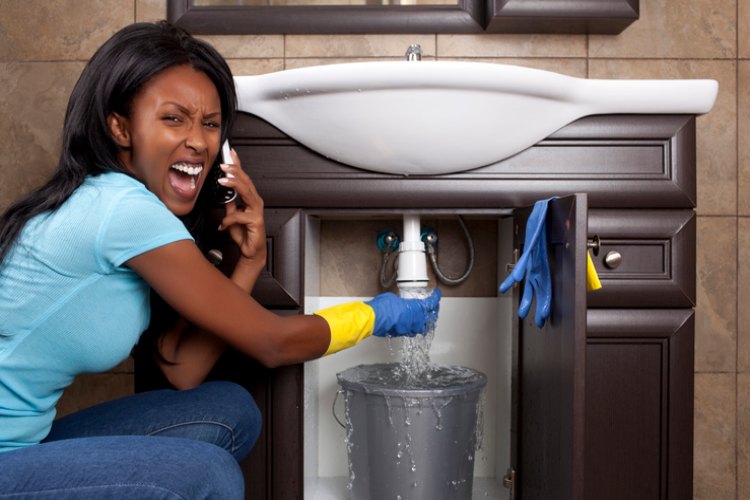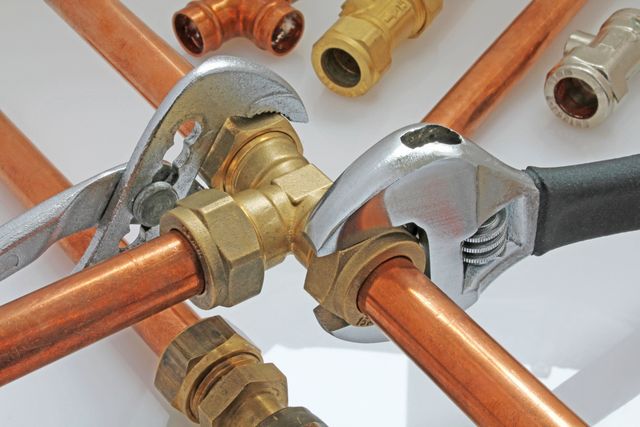Ways to Manage Urgent Plumbing Problems Before Expert Help Arrives
Ways to Manage Urgent Plumbing Problems Before Expert Help Arrives
Blog Article
They are making a few great annotation on the subject of What to Do During a Plumbing Emergency in general in the content down below.

Pipes emergency situations can strike at any time, causing stress and anxiety and potential damage to your home. Whether it's a burst pipe, a clogged drain, or a leaky tap, recognizing just how to take care of the circumstance up until an expert plumbing technician shows up can conserve you from additional issues. This post offers important emergency plumbing tips to aid you alleviate damages and reclaim control throughout a pipes dilemma.
Shut off the Water System
The primary step in any kind of pipes emergency situation is to shut down the water. For local concerns, such as a dripping tap or commode, switch off the valve near the fixture. In the case of a significant leakage or ruptured pipeline, find your home's primary water shut-off shutoff and turn it off right away. Understanding the location of these valves beforehand can save important time during an emergency.
Address Tiny Leakages with Short-lived Solutions
Little leaks can rapidly become considerable issues if left unattended. Use these temporary solutions till expert assistance arrives:
While these solutions aren't irreversible, they can aid lessen water loss and damage.
Unclog Drains Safely
A clogged drainpipe can be an irritating and untidy issue. Here's how to tackle it:
If these techniques don't work, avoid making use of too much pressure, as it may intensify the clog.
Take Care Of Overflowing Toilets
An overruning bathroom can cause prompt disorder. Right here's what you ought to do:
Shut down Your Hot Water Heater
In specific emergencies, such as a ruptured pipeline, it's smart to turn off your water heater. This protects against getting too hot or damage to the unit when water quits moving. Shut off the power supply to the water heater (electrical or gas) and allow it cool down to avoid possible risks.
Temporarily Quit a Ruptured Pipe
A ruptured pipeline can result in significant water damages in minutes. To mitigate the concern:
Call a specialist plumbing immediately to attend to the problem completely.
Handle Frozen Piping Thoroughly
In cooler climates, icy pipes are an usual emergency. If you presume an icy pipe:
Avoid More Damage
Taking quick activity to minimize damages can conserve you time and money over time. Below's how:
. Have an Emergency Pipes Kit
Prepare a standard plumbing emergency situation set to handle small issues successfully. Your kit must include:
Having these tools handy can make a significant distinction in your ability to handle emergency situations.
Know When to Call an Expert.
While quick fixes can aid briefly, particular plumbing problems call for instant specialist attention. Call a plumbing technician if:.
Immediately speaking to a professional guarantees the problem is solved correctly and avoids additional difficulties.
Conclusion.
Plumbing emergency situations can be frustrating, but with the best understanding and devices, you can take care of the situation efficiently up until aid gets here. By turning off the water, addressing tiny leakages, and making use of short-lived solutions, you can decrease damages and maintain your home safe. Keep in mind, these ideas are temporary solutions; always consult a qualified plumbing professional to take care of the origin of the issue. Preparation and quick thinking are your best allies in any type of plumbing emergency.
8 Helpful Tips for Managing Plumbing Emergencies at Home
If your plumbing system hasn’t failed once, wait for it because almost everyone has a story to tell. Sometimes, it could be simple emergencies such as a leaking pipe, a blocked cistern, or even a big burst pipe. In situations like this, you need to have some handy tips to save you some money and from possible damages.
Take care of minor issues early.
Sometimes, you could have avoided an emergency by taking proactive measures while it was still early. Some major plumbing emergencies can be a result of an ignored minor issue. We recommend that you have items like plumbing tapes and other related items. A plumbing tape can allow you to manage minor leaks before the plumber arrives.
Cut off the water supply.
This tip is essential in almost any type of leakage problem. For problems like minor leakages in the toilet or kitchen, turn off the supply that takes water to the affected pipes. If the leakage is a major pipe, you must shut off the supply valve to the entire building. This will help you avoid flooding your home and neighbors if you share a flat.
Know your plumbing system
Folks typically move into a new apartment without understanding the water supply around the building. This can prove disastrous if a water emergency arises and the plumber is far away. The previous tip will prove useless if you don’t practice this one. More importantly, know where your water shut-off valve is located – you’ll need that knowledge to prevent potential home floods.
Have some common handy tools
There are lots of plumbing emergencies that you can handle without hiring a plumber. That’s why you must keep some tools available always. Some tools that you can use to fix simple plumbing emergencies easily include plumbing tapes, screwdrivers, thread seal tapes, plungers, pliers, tape measures, and rubber gloves.
Insulate your pipes from cold
You’ll save yourself from many plumbing expenses if you protect your water pipes from the cold. This is because of the harmful effects that cold weather can have on your pipes. During winter, your pipes can burst from being overly expected to freezing temperatures. So, make sure insulators are there to keep the pipes working correctly.
Avoid practices that will clog your toilet.
Many people indulge in practices that can damage the plumbing system of the entire building. One of these is when they use their toilet to dispose-off garbage. They flush all kinds of things, such as paper towels, bandages, hairs, female sanitary products, etc., down the toilet. This will block your toilet in the long run, incurring unnecessary expenditures. Dump such waste in the trash instead.
Check your dials regularly.
Sometimes, there could be leakages in your home without noticing them in time. So, constantly monitor your water meter dial. If the dial is reading when there is nobody using water, this is an indicator that there is leaking. Check for leaks immediately. Call a plumber as soon as possible if you can’t find any.
https://www.constructionplacements.com/8-helpful-tips-for-managing-plumbing-emergencies-at-home/

I discovered that write up about What to Do During a Plumbing Emergency while surfing around the web. Sharing is caring. One never knows, you will be helping someone out. We treasure your readership.
Booking Page Report this page